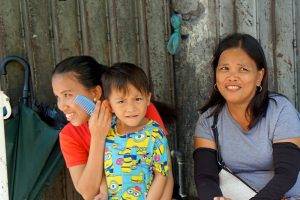Medical Channel Asia presents the weekly Asian medical news bulletin, bringing you essential healthcare news from across the region. This week’s bulletin covers government policies in Thailand & Malaysia, smoking in Indonesia and cybersecurity for medical devices in Singapore
Thailand
Thailand’s government has formed a pivotal healthcare committee to overhaul the nation’s diverse medical care systems. This initiative raises expectations for equitable, high-quality healthcare for all citizens amidst existing coverage and service quality disparities. The committee’s challenge lies in integrating these systems, ensuring fair access, and managing funding efficiently while navigating complex political dynamics.
Thailand’s healthcare landscape is uneven, with distinct schemes offering different care levels and costs. The universal system is the most inclusive but also faces funding challenges. Meanwhile, other systems, like those for civil servants, offer broader benefits but cater to fewer individuals.
Malaysia
Health experts suggest Malaysia’s budget for the Madani medical scheme, targeting lower-income groups, should be increased and doubled to decongest public healthcare facilities. There are calls for more apparent strategies on new health initiatives and reallocating sugar-sweetened beverages tax revenue for preventive health measures. Concerns also extend to the underfunding of healthcare digitalisation and the need for stronger public-private partnerships in healthcare service delivery.
Also reported this week:
Getting Type 2 Diabetes At 30 Reduces Life Expectancy By 14 years
Sleep Deprivation And Cardiovascular Health : A Silent Epidemic Among Malaysians
Philippines
The National Privacy Commission (NPC) of the Philippines recently introduced a dedicated online portal called “PhilHealthLeak Search Tool.” This development comes after a significant cyber breach in September targeting the Philippine Health Insurance Corp. (PhilHealth), jeopardizing members’ personal information.
The tool, designed to align with the Data Privacy Act of 2012, enables PhilHealth members to verify the security of their personal data following the attack, believed to have been perpetrated by the Medusa Ransomware Group.
Also reported this week:
The Philippines Falling Short of its Goal of Reducing Childhood Mortality
The Silent Epidemic: How Cavities Affect Children
Accessible Reproductive Services in the Philippines Amid Rising Pre-Marital Sex
Singapore
The Singapore government is addressing cybersecurity concerns in medical devices by proposing a rating system. This system aims to help consumers and healthcare providers choose devices with better security, reducing the risk of hacks on equipment like pacemakers, insulin pumps, and CT scanners.
Senior Minister Janil Puthucheary announced a sandbox testing phase for the Cybersecurity Labelling Scheme for Medical Devices, allowing manufacturers to provide feedback. This effort, involving various health and cybersecurity agencies, responds to risks posed by the increasing connectivity of medical devices.
Also reported this week:
Parathyroid Disorders: A Deep Dive into a Lesser-Known Gland
Lupus: The Intricate Dance of the Immune System
Battling the Bump: Unravelling the Truth About Haemorrhoids
Indonesia
In a recent statement, Ngabila Salama of the Indonesian Health Ministry underscored the severe global implications of smoking, pointing to its health, economic, and social repercussions. Highlighting the direct links between smoking, poverty, and developmental issues in children, Salama called for stringent anti-smoking regulations, emphasising the urgent need for public awareness and action, particularly in Indonesia, which records the world’s highest prevalence of adult male smokers at 71.3%.
Also reported this week:
New Study Reveals Lasting Medical Effects on Tsunami Survivors
Cough Medicine That Caused 200 Child Deaths in Indonesia Found To Be Almost Pure Toxin
Vietnam
Ho Chi Minh City faces a health crisis with six new cases of monkeypox, totalling 19 infections, as reported by Vietnam’s Health Ministry. While the current 12 patients are stable, the city intensifies its disease prevention efforts, given monkeypox’s categorisation as a group B infectious disease.
Simultaneously, Vietnam grapples with a significant dengue fever outbreak, with 99,639 cases and 27 fatalities this year. Despite a national decrease in dengue instances, Hanoi experiences a surge, with a 1.5-fold increase in weekly cases since September end, attributed to weather conditions favouring mosquito breeding. This year, the capital’s 20,548 cases triple its previous records, raising concerns amidst the health community.












